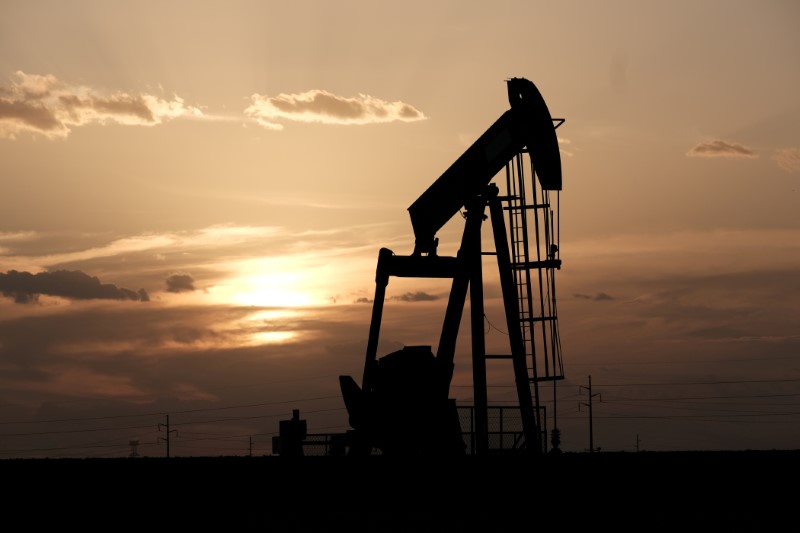
By Ron Bousso
LONDON (Reuters) – Global oil benchmark Brent crude rose to more than $64.50, recovering from four days of declines on easing Middle East tensions, as the United States and China prepared to sign a preliminary trade deal.
Brent crude gained 43 cents, or 0.7%, to $64.63 a barrel by 1507 GMT. U.S. West Texas Intermediate crude futures rose 11 cents, or 0.2%, to $58.20 a barrel.
The outlook for oil demand was supported by the expected signing of a Phase 1 U.S.-China trade deal on Wednesday, marking a major step in ending a dispute that has cut global growth and dented demand for oil.
China has pledged to buy more than $50 billion in energy supplies from the United States over the next two years, according to a source briefed on the trade deal.
The trade war between the world’s two biggest energy consumers had a tangible impact on global oil demand growth last year, said Tamas Varga, an analyst at broker PVM. Varga pointed to 2019 demand growth of 890,000 barrels per day (bpd), compared with initial forecasts of 1.5 million bpd.
“This year, however, the pace is expected to pick up again and average 1.25 million bpd … In the event of a trade deal upward revisions can be anticipated,” Varga said.
Regardless of trade wars, China’s crude oil imports in 2019 surged 9.5% from the previous year, setting a record for a 17th straight year as demand growth from new refineries propelled purchases by the world’s top importer, data showed.
However, gains were limited by easing concern over possible supply disruptions as a result of tensions in the Middle East.
The recent declines came as investors unwound bullish positions built after the killing of a senior Iranian general in a U.S. air strike on Jan. 2, which sent oil prices to a four-month high, said Harry Tchilinguirian, global oil strategist at BNP Paribas in London.
“As geopolitical tensions take a back seat for now, we may see more of the same in the short term,” Tchilinguirian told the Reuters Global Oil Forum.
Saudi Arabia’s energy minister, Prince Abdulaziz bin Salman, said his country will work for oil market stability at a time of heightened U.S.-Iranian tension.
He also said it was too early to talk about whether the Organization of the Petroleum Exporting Countries (OPEC) and its allies, a group known as OPEC+, would continue with production curbs that are due to expire in March.
Separately, U.S. crude oil inventories were expected to have fallen last week, a preliminary Reuters poll showed on Monday.
The poll was conducted ahead of reports from the American Petroleum Institute (API), an industry group, and the Energy Information Administration, an agency of the U.S. Department of Energy.
(Additional reporting By Jessica Jaganathan; Editing by Louise Heavens and David Goodman)







